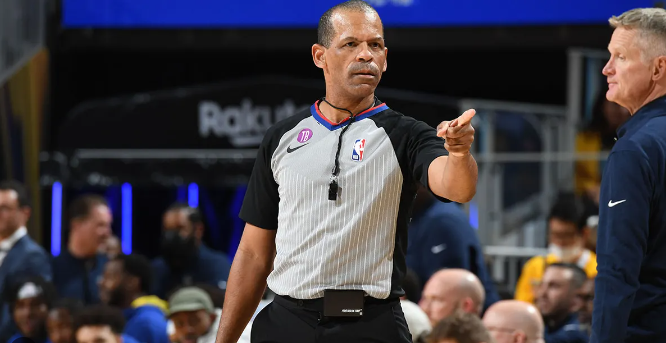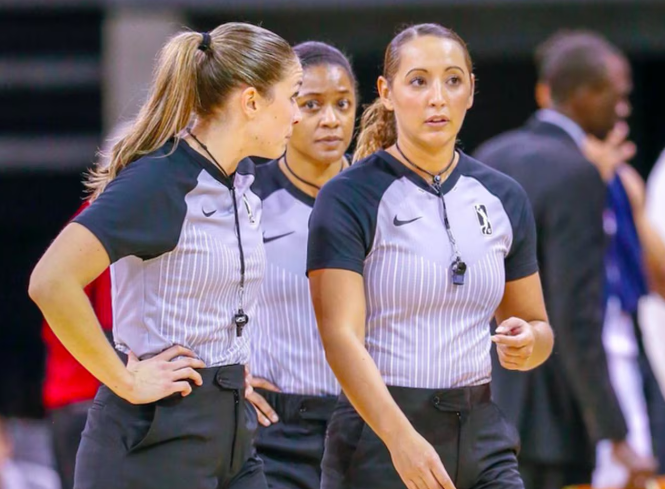
New rules practice tests are available.
These practice tests are made to prepare you for the upcoming camp.
We'll see you all next week!
| Your cart is empty |
SEMI-FINALS: YSS VS SUPREME BLACK LEATHER
SEMI-FINALS: WAWG VS CHEATERS
CONSOLATION GAME: WAWG VS BLACK LEATHER SUPREME
CHAMPIONSHIP GAME: YSS VS CHEATERS

New rules practice tests are available.
These practice tests are made to prepare you for the upcoming camp.
We'll see you all next week!

Balancing the demands of being a basketball referee with the rigors of everyday life is a delicate dance, requiring meticulous planning and unwavering dedication. As a seasoned official with over two decades of experience in the NBA, I've learned to navigate this dynamic with finesse.
On one hand, there's the high-pressure environment of officiating professional basketball games, where split-second decisions can sway the outcome of a match. It demands sharp focus, impeccable judgment, and a thorough understanding of the rules. On the other hand, there's the need to nurture personal relationships, pursue hobbies, and attend to mundane tasks that keep life ticking.
Finding harmony between these two realms involves effective time management, clear communication with loved ones, and unwavering commitment to both professional and personal pursuits. Whether it's carving out dedicated hours for training and game preparation or prioritizing quality time with family and friends, striking the right balance is key to thriving both on and off the court. In essence, being a basketball referee isn't just a job; it's a way of life that demands resilience, discipline, and a passion for the game.

As a basketball referee, balancing work and life requires adept time management skills. On the court, precision timing is crucial for making split-second decisions that can sway the outcome of a game. Off the court, managing time effectively is equally essential to maintain a healthy work-life balance.
Referees often juggle their officiating duties with other commitments, whether it's a full-time job, family responsibilities, or personal pursuits. Prioritizing tasks, setting boundaries, and maintaining clear communication with employers, family, and colleagues are key strategies for success.
In the fast-paced world of basketball, referees must also find time for continuous learning and self-improvement. Studying rulebooks, reviewing game footage, and attending training sessions are essential for staying sharp and adapting to the ever-evolving demands of the sport.
Ultimately, effective time management enables basketball referees to excel both on and off the court, fostering fulfillment in their professional and personal lives while ensuring they deliver their best performance every game.

For basketball referees, managing retirement plans is a crucial aspect of their career trajectory. With the NBA season demanding physical and mental stamina, it's essential to prioritize long-term financial stability. During the season, referees should diligently contribute to retirement accounts such as 401(k)s or IRAs, taking advantage of any employer matching programs.
Moreover, establishing a diversified investment portfolio can help safeguard against market fluctuations. Throughout their careers, referees should regularly reassess their financial goals and risk tolerance, adjusting their investment strategy accordingly. As retirement approaches, gradually shifting investments towards more conservative options can protect accumulated savings.
Post-season, referees should review their retirement plans, ensuring they align with retirement goals and lifestyle expectations. Consulting with financial advisors can provide valuable insights and guidance for navigating the transition into retirement. Additionally, exploring supplemental income streams or part-time work opportunities can help maintain financial stability while enjoying retirement. By proactively managing retirement plans throughout their careers, basketball referees can secure a comfortable and fulfilling post-career life.
